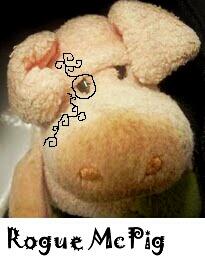 These sunflowers are all along the back roads in New Mexico right now, bright as summer itself. I’m over at Word Whores this September Sunday, talking about the worst place I’ve written.
These sunflowers are all along the back roads in New Mexico right now, bright as summer itself. I’m over at Word Whores this September Sunday, talking about the worst place I’ve written.
RITA ® Award-Winning Author of Fantasy Romance
 These sunflowers are all along the back roads in New Mexico right now, bright as summer itself. I’m over at Word Whores this September Sunday, talking about the worst place I’ve written.
These sunflowers are all along the back roads in New Mexico right now, bright as summer itself. I’m over at Word Whores this September Sunday, talking about the worst place I’ve written.
 I’m over at the Contemporary Romance Cafe today, talking about what I think are the most admirable qualities for an author to have.
I’m over at the Contemporary Romance Cafe today, talking about what I think are the most admirable qualities for an author to have.
 At last! The cover for Rogue’s Possession!
At last! The cover for Rogue’s Possession!
Release day is October 7, but you can preorder it at Amazon or Barnes & Noble.
And today is the first drawing for the entries for a print copy of Rogue’s Pawn! Two entries are here. And here are two more:
and
And the winner, via Random.org is…
Carien!
(Who totally stacked the deck with three entries.) Amy, yours moves on to the drawing next week! For anyone else who wants to play, there are four hard copies of Rogue’s Pawn left! Rules are here.
 This time of year, all of my flowering vines blossom, like an end of summer special treat. They’ll be the first to go when we get a frost, so they are all the more fleeting for that. Transient and precious.
This time of year, all of my flowering vines blossom, like an end of summer special treat. They’ll be the first to go when we get a frost, so they are all the more fleeting for that. Transient and precious.
Speaking of which, Dear Author is giving away three copies of Ruby.As of this writing, the giveaway ends in 36 hours, so hie on over if you’re interested.
I’m over at Word Whores, as I am every Sunday, come holiday or foul weather. This week we’re looking at Juggling Multiple Projects & Deadlines: How to Do It Well.
From Jody Wallace:
Snippet Saturday is the brainchild of author Lauren Dane, wherein a group of authors select thematic excerpts from their work and share them on Saturday mornings. This Saturday’s snippet is author’s choice. I thought I’d share a “cat-themed” snippet from an author friend, Jeffe Kennedy!
So far there are two entries in the Rogue’s Pawn Giveaway, and this is my favorite. Of course, the other is only slightly less brilliant:
 You’ll note that both of these are from Carien at Pearls Cast Before a McPig, so she stands to win Monday’s Cover Reveal drawing unless the rest of you plan to get busy this weekend! I know you all are thinking about it, cuz you’ve told me so. Make those fun ideas into reality! I totally want to see the Rogue Prawn interpretations.
You’ll note that both of these are from Carien at Pearls Cast Before a McPig, so she stands to win Monday’s Cover Reveal drawing unless the rest of you plan to get busy this weekend! I know you all are thinking about it, cuz you’ve told me so. Make those fun ideas into reality! I totally want to see the Rogue Prawn interpretations.
Tomorrow I’ll be featured on the Dear Author blog for their August Extravaganza. Nice way to say goodbye to August. ~waves nostagically~ Stop by if you can!
Also, if you’re looking for a great local writers and readers conference this fall, check out Fiction Writing in the Digital Age, taking place in Las Vegas this October. Among others, my Kensington editor, Peter Senftleben, and my agent, Pam van Hylckama Vlieg, will be there. I’ll be giving what should be a very fun cross-genre workshop:
More than Wham, Bam, Thank-You M’am – Wooing the Female Reader
Over and over, statistics show that more women are reading fiction than men, particularly on e-Readers. With the overwhelming success of works like Fifty Shades of Grey and Twilight, it bears examining just what female readers are looking for – and what they’re buying. This workshop will examine how romance can be used to both attract readers and illuminate characterization. Sexual attraction can both entice and ratchet up the overall tension of any plot. Jeffe Kennedy, award-winning author of numerous series of erotic romance and fantasy, will walk participants through examples from literature and movies, to illustrate what women really want from a story.
Small conferences like this are great for meeting the industry folks in a more informal way. And besides, Vegas Baby! You’ll also see on the schedule that there are a couple of signings, so if you’re in the area, stop by and say hello!

Oh yes. You know.
Or, at least, the small community of rabidly passionate Rogue’s Pawn fans (you know who you are) are doing little chair dances right now.
That’s right. I haz hard copies. And I’m giving them away.
So, here’s the deal. I only have these five. These are the ones that Carina printed for the final judges in case the book finaled in the RITA awards. Since it didn’t, Carina sent these to me. There were also five books that went out to the first round judges, so they’re out there swimming in the world (or have gone to the big recycling bin in the sky). Otherwise, these are all there is for now. Do you know what that means? YES!
*Collector’s Item*
Now, because these were printed for the contest, they’re not high quality. They’re mass-market paperback sized and have all the same content as the digital book, but it doesn’t look or feel like a standard mmpb. Fair warning.
That said, I want you guys to have them, so you have something physical to hug and cuddle.
Yes, I know how you people are.
In celebration of the sequel, Rogue’s Possession, launching on Monday, October 7 and the cover reveal happening this coming Monday, September 2, I’m sponsoring a giveaway scavenger hunt.
Okay, so, the question of the moment is:
What do you have to do to get your paws on one of these for your very own collection?
Show your love. I want pictures. Send me a photo of Rogue in the wild, with you or without you. It can be just his name on a piece of paper or a lovely man with the sign around his neck. Or be creative – find your own Rogue! You can also print out one of the two covers and take your picture with that. Or show me what you think Rogue’s “possession” might be.
Then post the picture – Twitter, Facebook, your blog, in the comments here – anywhere at all and be sure to tag me. If I don’t comment or reply, be sure to ping me so I’ll see it. Use the hashtag #ILoveRogue.
Each Monday, I’ll draw a winner, on:
9/2
9/9
9/16
9/23
9/30
For every picture you send me, you get another entry “ticket.” Anyone who doesn’t win in the previous week will get added to the next week’s drawing. International is fine – I’ll pay the pound of flesh to ship this to you.
On release day, 10/7, we’ll do something super-special. More than just copies of Rogue’s Possession, though we can do that, too. In fact, let me know what you want and we’ll make it happen!
I’m so excited about this sequel finally coming out, and hearing you all making excited noises, too, just heightens the fun!
Now, hie thee out there and post some pictures!
 I’m over at Word Whores this very rainy Sunday morning, talking about writing playlists…and wondering if anyone cares.
I’m over at Word Whores this very rainy Sunday morning, talking about writing playlists…and wondering if anyone cares.
 I’m over at Here Be Magic today and all weekend, talking about disabled heroines (can you think of any?) and doing a Happy Birthday to Me Giveaway! So hie on over, should you be so inclined!
I’m over at Here Be Magic today and all weekend, talking about disabled heroines (can you think of any?) and doing a Happy Birthday to Me Giveaway! So hie on over, should you be so inclined!

 We haven’t had a Jackson pic on the blog for a bit. Here he is, being writer’s block. He’s very good at it. When he wants to be on my lap, I *must* move the laptop computer and give him access. Note the expression, also – which is one hair before head-butting me for more petting.
We haven’t had a Jackson pic on the blog for a bit. Here he is, being writer’s block. He’s very good at it. When he wants to be on my lap, I *must* move the laptop computer and give him access. Note the expression, also – which is one hair before head-butting me for more petting.
This morning when I logged onto Twitter, I saw this article about a hacker getting into a slew of Twitter accounts. I read this bit:
Active Twitter users should immediately revoke all third-party apps tied to their account. To do so, visit Twitter’s application page and click “revoke access” for each app listed. You can then go through the connection process again for the apps you still want to use.
Cleaning house like this is a good practice in general — you may be surprised about how many third-party providers you granted access to your account since signing up.
And decided it was probably good advice. They were right – I *was* surprised. I bet I’d granted access to something like 40 3rd party apps. I revoked them all, feeling all the virtue of the spring cleaning effort. After all, I could just go through the connection process again for the ones I wanted to keep! Tra lay, tra lay.
Not so much.
The first thing I did was re-open TweetDeck. Now, I did a post on Word Whores on Sunday, smugly explaining how I manage the Twitter Avalanche of Input by using lists. Many, many lists in carefully ordered columns. Well, when I revoked access, TweetDeck dumped all of my columns. I had to re-add and re-order them all.
It was probably good, because I discovered I hadn’t updated some of my lists recently and one was public that I’d meant to be private. Alas. Still it sucked up time I hadn’t planned on and now I feel like I’m running behind.
This all came after I got online, which was also delayed by an extended mouse rodeo.
See, we have the kitty litter boxes out in the garage and a cat door for the kitties to go from the house to the garage. This works out great and we’ve done this in all three houses we’ve owned, although it was the basement area in the previous two. Keeps the litter box odor and detritus from the living space. However, in this house, mice can penetrate the garage. They worm their way in, especially this time of year, stockpiling food supplies for winter. Fortunately, our cats are good hunters and catch the mice. Unfortunately, they mostly enjoy the capture part – and they want to share the joy of their prizes. So they bring the mice into the house.
Usually in the middle of the night.
We can pretty much ignore the tell-tale sounds of the hapless mouse being chased from cubby hole to hiding spot while we sleep. Thus, in the morning, we’ll rise to the kitties holding vigil in front of the couch or armchair, where the mouse will have taken final refuge. David will get his work gloves and we’ll tip up the heavy furniture. Working like a pride of lions, David and the kitties will round up the mouse and David takes it outside.
I know, I know – where it likely learns no lesson at all. Sometimes I wonder if these are the same mice, over and over. But we’re a catch and release household.
This morning, however, was not a seamless operation. We blame Jackson.
Jackson is really bad about loving to play with the mice. So bad that, given the least opportunity, he’ll snag the mouse and run off with it, depositing it in yet another part of the house. Today it was my office. The bookshelf was bad enough – requiring the removal of many books – but then the mouse got into the motor compartment of my treadmill. This meant getting out the screwdriver and removing the cover to the compartment. I said, oh well, the maintenance instructions said to remove the cover every six months and vacuum it out. I’d been meaning to do that. David got the tools. I got the handheld vacuum cleaner. Jackson got locked out this time.
So, plus side, the compartment WAS full of dust and cat hair, so it needed to be done. On the down side, the mouse was a PITA to get out from under the motor. We finally chased him out of there and he ran under the printer stand. More dust and dust bunnies. David finally captured the feisty bugger and he’s has rejoined his kin with a fine story to tell. I set to vacuuming, feeling the virtue of the spring cleaning effort.
All told, this took about an hour out of our morning, putting me behind. Which was further exacerbated by the Twitter thing.
Funny how some days are like that.